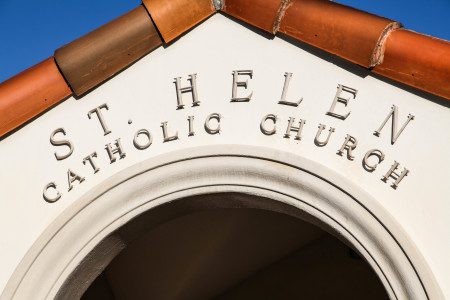Reading 1 Deuteronomy 30:15-20
Moses said to the people:
“Today I have set before you
life and prosperity, death and doom.
If you obey the commandments of the LORD, your God,
which I enjoin on you today,
loving him, and walking in his ways,
and keeping his commandments, statutes and decrees,
you will live and grow numerous,
and the LORD, your God,
will bless you in the land you are entering to occupy.
If, however, you turn away your hearts and will not listen,
but are led astray and adore and serve other gods,
I tell you now that you will certainly perish;
you will not have a long life
on the land that you are crossing the Jordan to enter and occupy.
I call heaven and earth today to witness against you:
I have set before you life and death,
the blessing and the curse.
Choose life, then,
that you and your descendants may live, by loving the LORD, your God,
heeding his voice, and holding fast to him.
For that will mean life for you,
a long life for you to live on the land that the LORD swore
he would give to your fathers Abraham, Isaac and Jacob.”
Responsorial Psalm Psalm 1:1-2, 3, 4 and 6
R. (40:5a) Blessed are they who hope in the Lord.
Blessed the man who follows not
the counsel of the wicked
Nor walks in the way of sinners,
nor sits in the company of the insolent,
But delights in the law of the LORD
and meditates on his law day and night.
R. Blessed are they who hope in the Lord.
He is like a tree
planted near running water,
That yields its fruit in due season,
and whose leaves never fade.
Whatever he does, prospers.
R. Blessed are they who hope in the Lord.
Not so the wicked, not so;
they are like chaff which the wind drives away.
For the LORD watches over the way of the just,
but the way of the wicked vanishes.
R. Blessed are they who hope in the Lord.
Verse Before the Gospel Matthew 4:17
Repent, says the Lord;
the Kingdom of heaven is at hand.
Gospel Luke 9:22-25
Jesus said to his disciples:
“The Son of Man must suffer greatly and be rejected
by the elders, the chief priests, and the scribes,
and be killed and on the third day be raised.”
Then he said to all,
“If anyone wishes to come after me, he must deny himself
and take up his cross daily and follow me.
For whoever wishes to save his life will lose it,
but whoever loses his life for my sake will save it.
What profit is there for one to gain the whole world
yet lose or forfeit himself?”
– – –
Lectionary for Mass for Use in the Dioceses of the United States, second typical edition, Copyright © 2001, 1998, 1997, 1986, 1970 Confraternity of Christian Doctrine; Psalm refrain © 1968, 1981, 1997, International Committee on English in the Liturgy, Inc. All rights reserved. Neither this work nor any part of it may be reproduced, distributed, performed or displayed in any medium, including electronic or digital, without permission in writing from the copyright owner.


